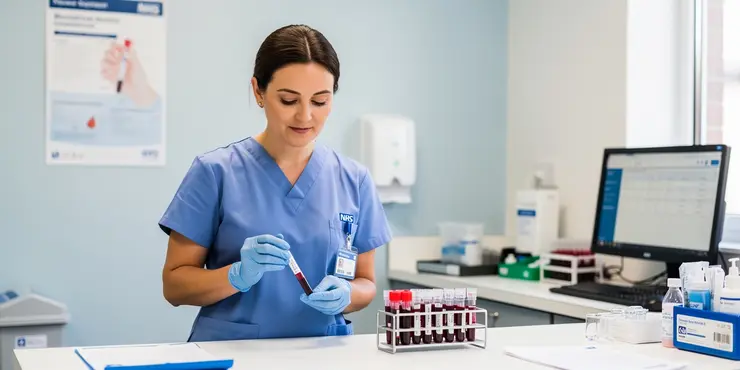
Find Help
More Items From Ergsy search
-
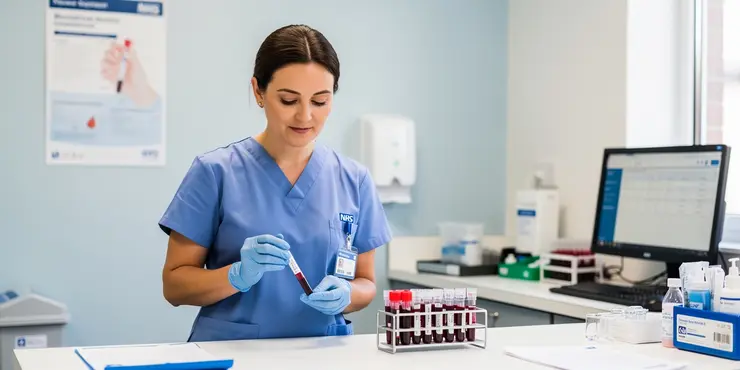
How is HIV diagnosed?
Relevance: 100%
-
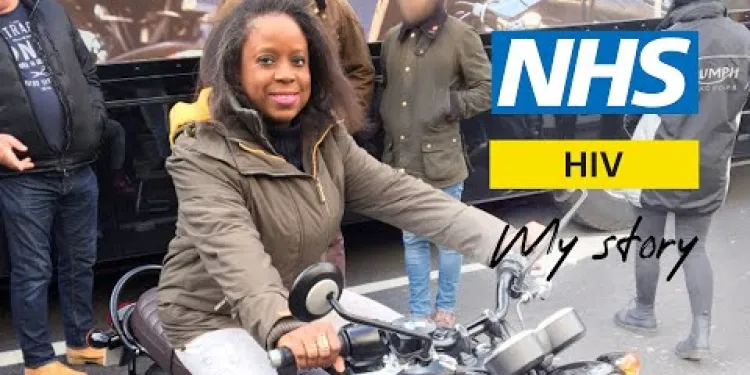
HIV - My Story - Florence | NHS
Relevance: 97%
-
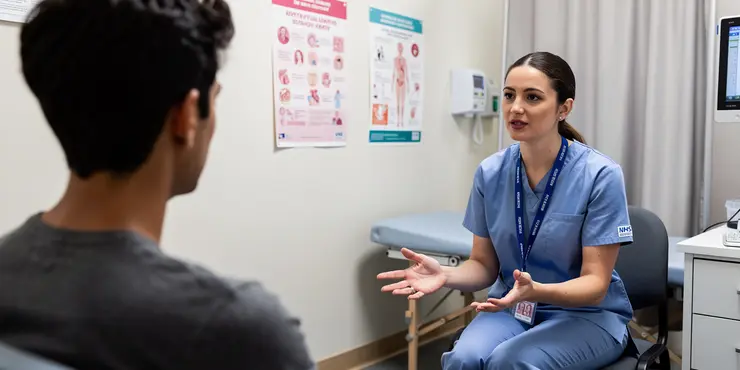
What is HIV?
Relevance: 95%
-

HIV and pregnancy | NHS
Relevance: 88%
-
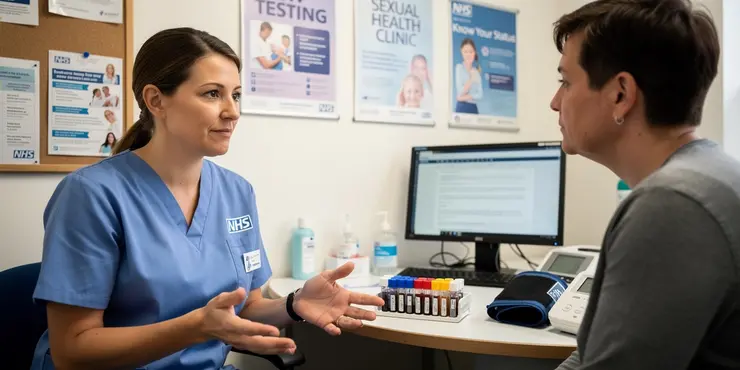
How is HIV transmitted?
Relevance: 88%
-
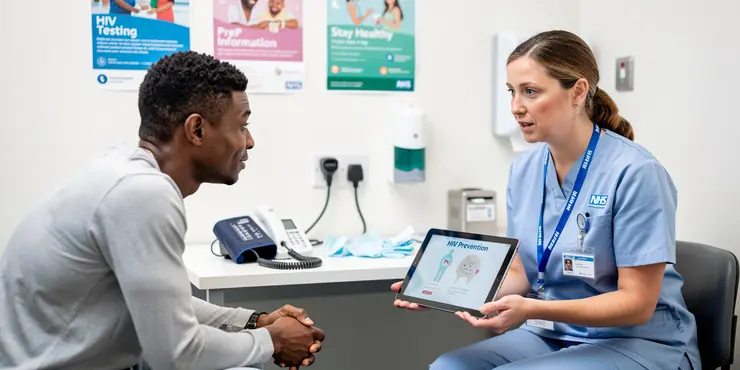
How can HIV be prevented?
Relevance: 87%
-

Sexual Health - HIV Testing
Relevance: 85%
-
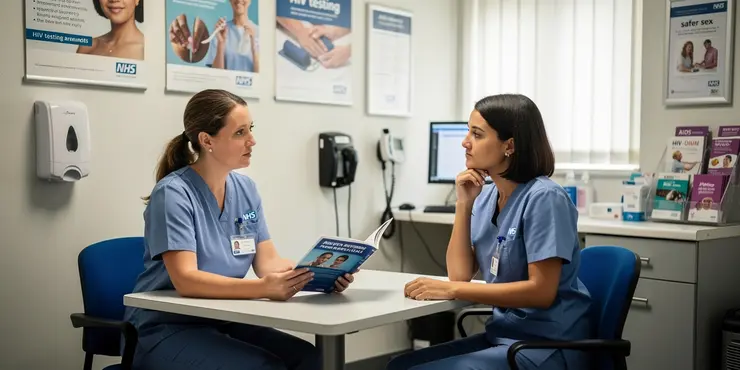
What is HIV / AIDS?
Relevance: 84%
-
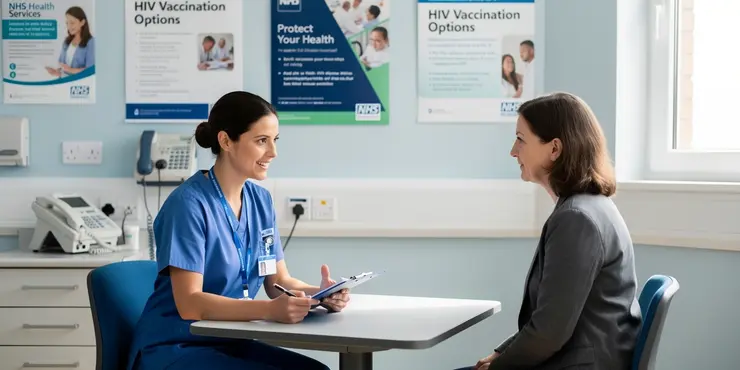
Are there vaccines available for HIV?
Relevance: 84%
-
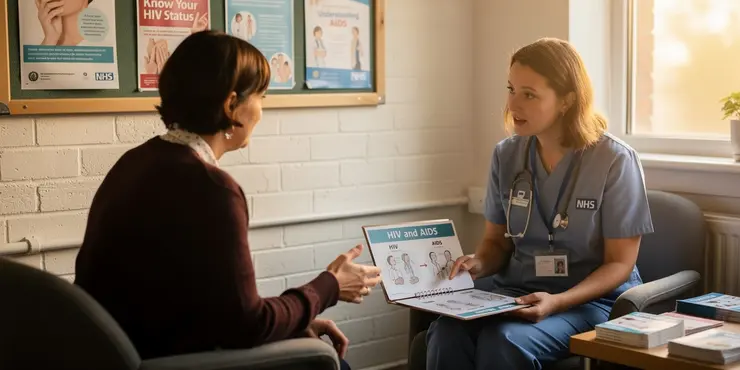
What is the difference between HIV and AIDS?
Relevance: 83%
-

Can people with HIV lead normal lives?
Relevance: 80%
-
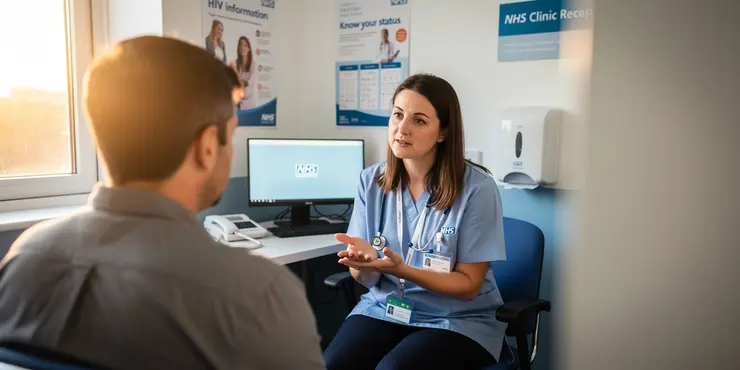
Is HIV only a concern for certain groups of people?
Relevance: 75%
-
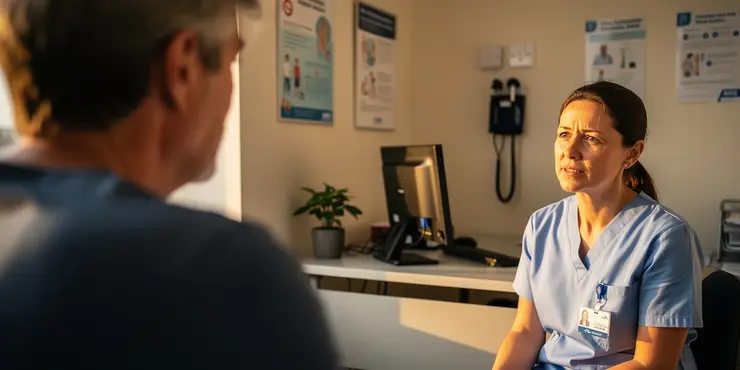
Can HIV be transmitted through insect bites?
Relevance: 75%
-
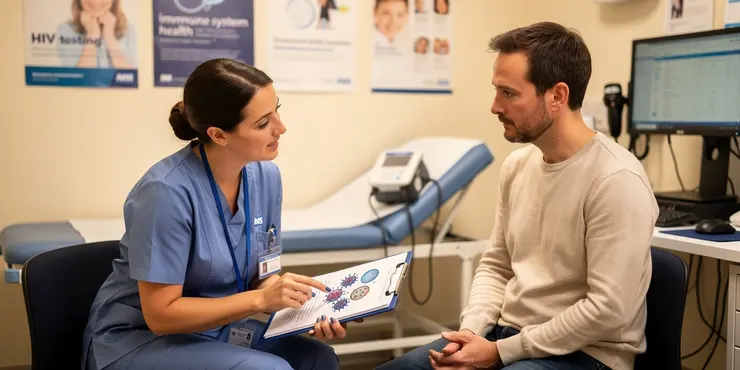
How does HIV affect the immune system?
Relevance: 75%
-
Can HIV be transmitted through blood transfusions?
Relevance: 75%
-
What role does stigma play in the HIV epidemic?
Relevance: 74%
-
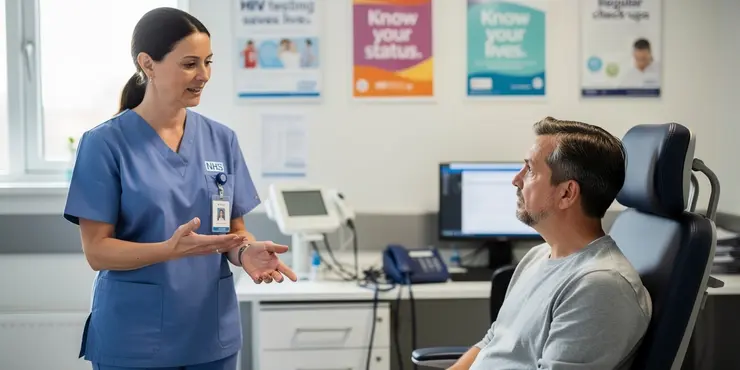
How often should someone get tested for HIV?
Relevance: 74%
-
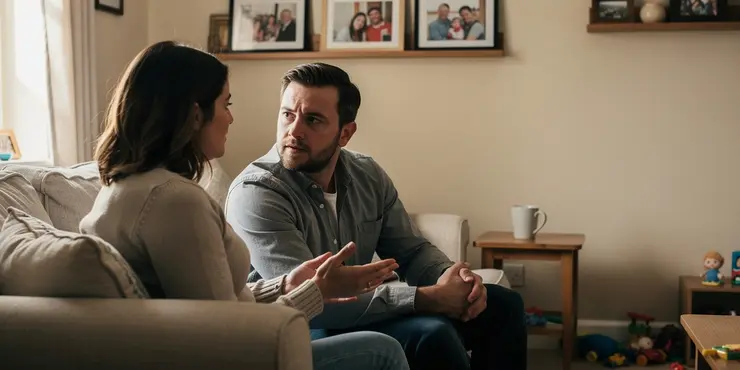
Is it safe for a partner of someone with HIV to have children?
Relevance: 71%
-
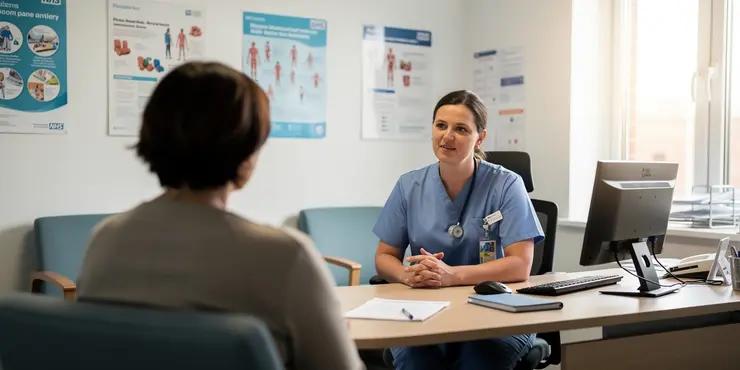
What are the symptoms of HIV?
Relevance: 66%
-
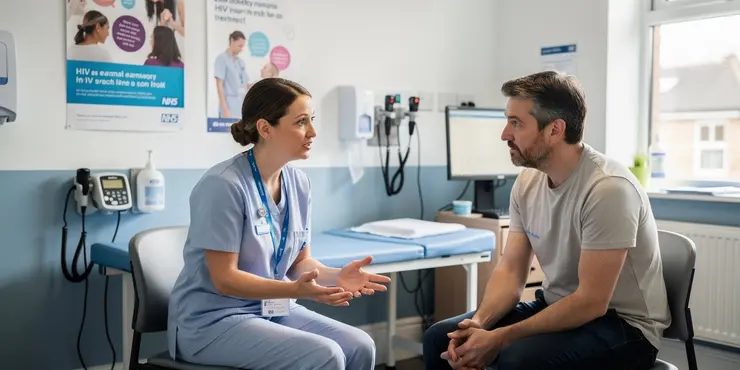
Can HIV be cured?
Relevance: 62%
-
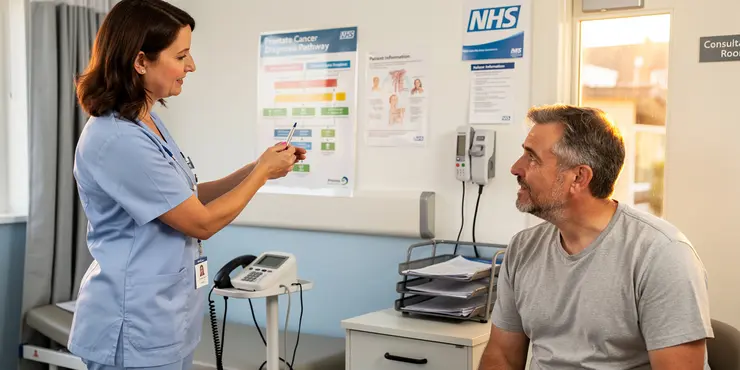
Prostate cancer diagnosis and tests
Relevance: 57%
-
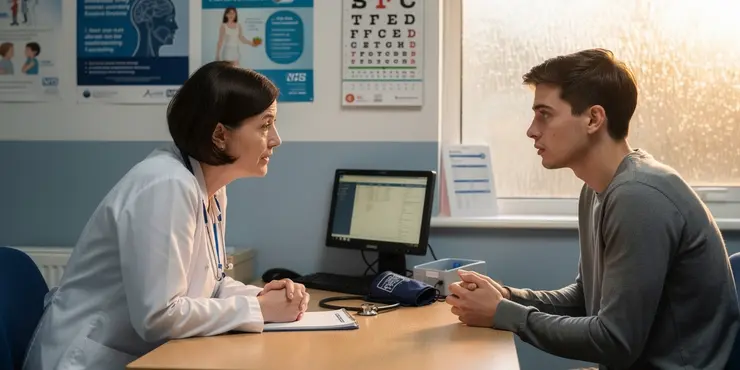
BSL - Diagnosis of panic disorder
Relevance: 56%
-
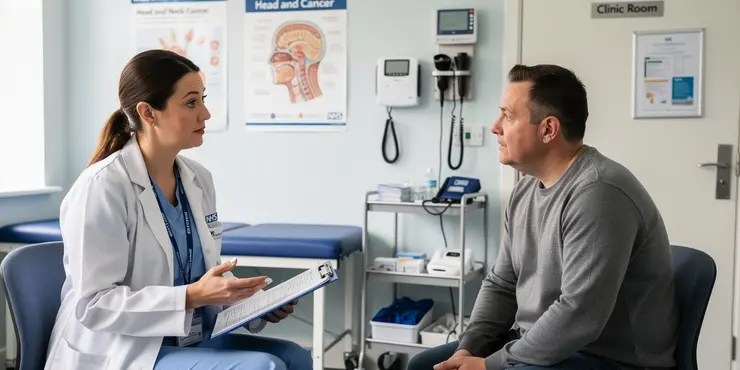
Head and Neck Cancer Diagnosis
Relevance: 56%
-
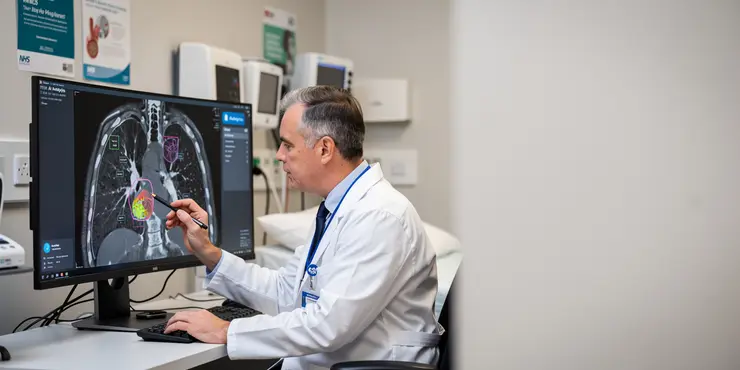
Are AI systems used alone in lung cancer diagnosis or alongside human radiologists?
Relevance: 54%
-
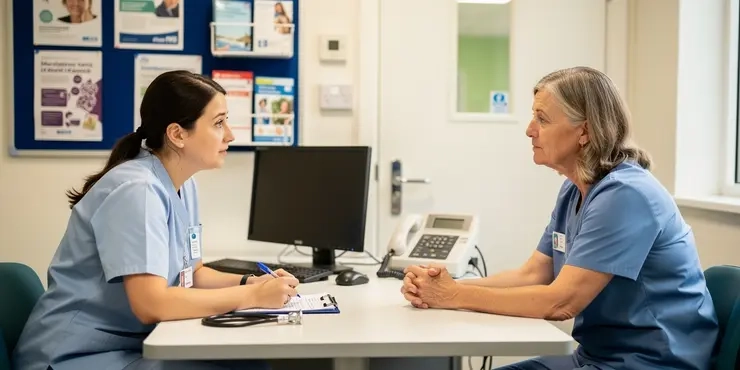
Attention deficit hyperactivity disorder (ADHD) - Diagnosis
Relevance: 52%
-

BSL - Diagnosis of obsessive compulsive disorder (OCD)
Relevance: 51%
-
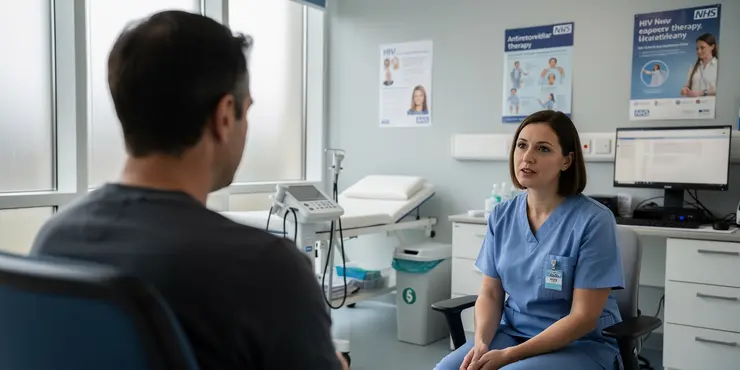
What is antiretroviral therapy (ART)?
Relevance: 47%
-
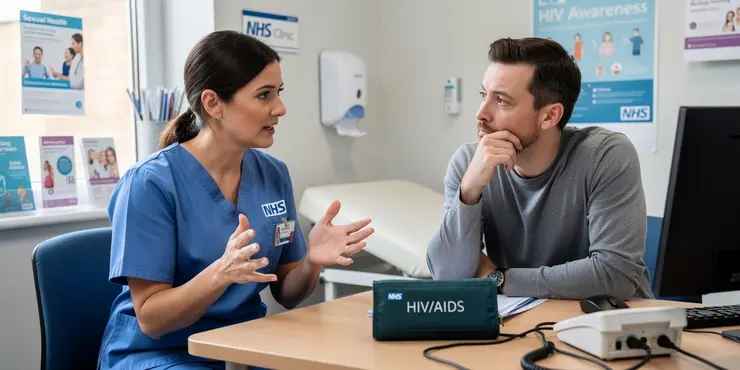
What is AIDS?
Relevance: 46%
-
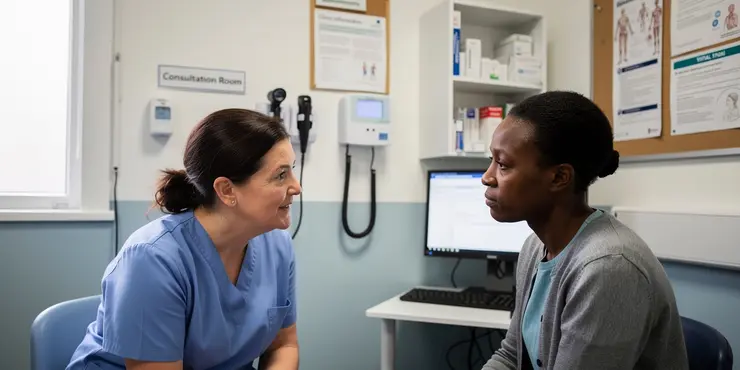
What is the life expectancy after a motor neurone disease diagnosis?
Relevance: 46%
-
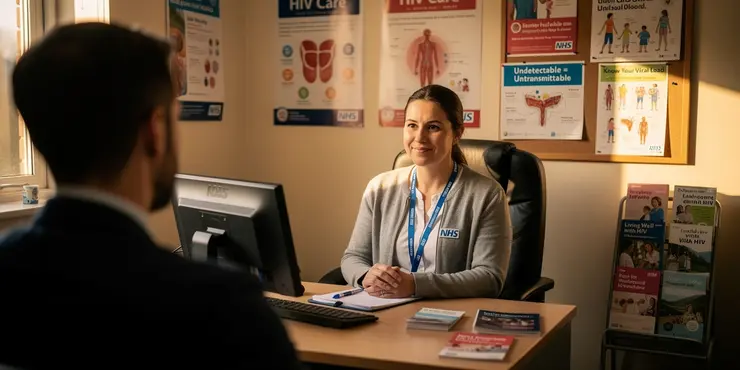
What does an undetectable viral load mean?
Relevance: 37%
-
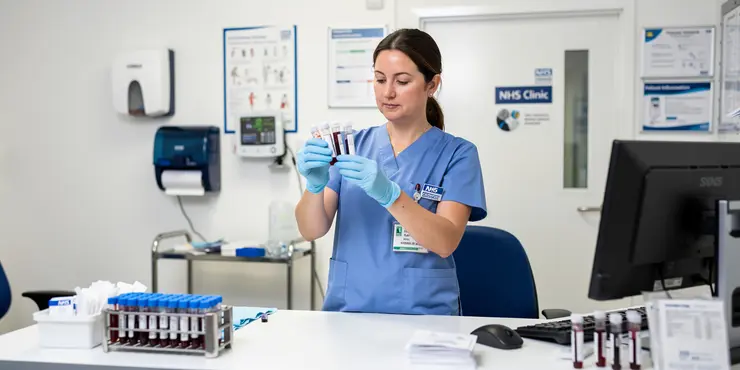
What other viruses are tested for in blood donations?
Relevance: 33%
-

Can HIV be transmitted through casual contact?
Relevance: 33%
-
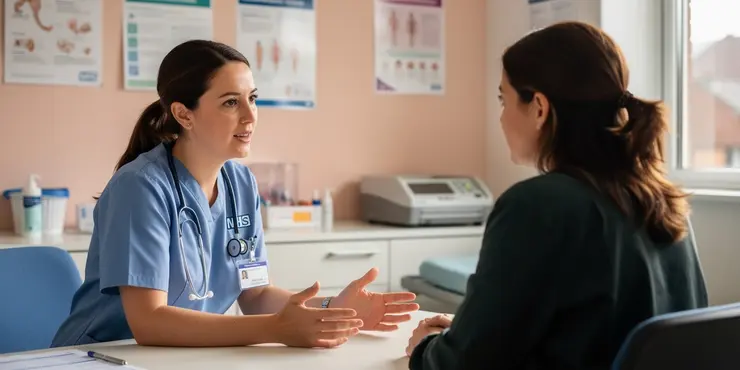
Sexually transmitted infections STIs
Relevance: 33%
-

What diseases can be spread by blood transfusions?
Relevance: 28%
-
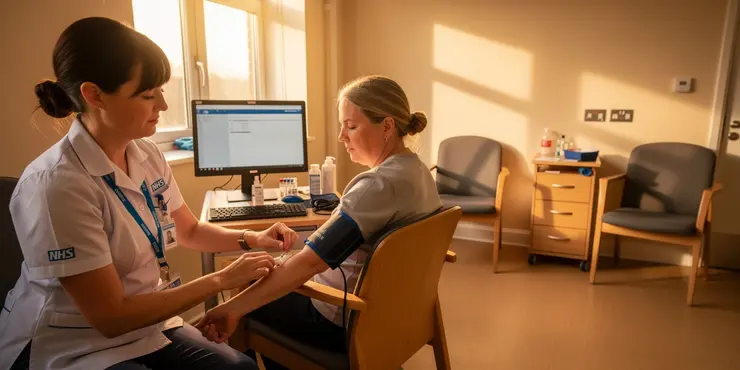
How is blood screened to prevent disease transmission?
Relevance: 28%
-
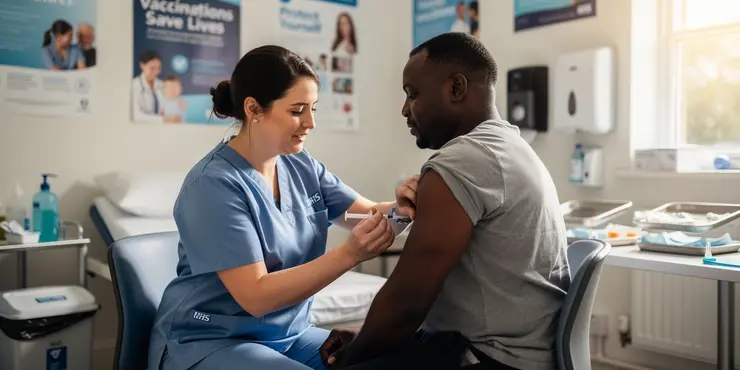
What are the guidelines for meningitis vaccination for HIV-infected individuals?
Relevance: 28%
-
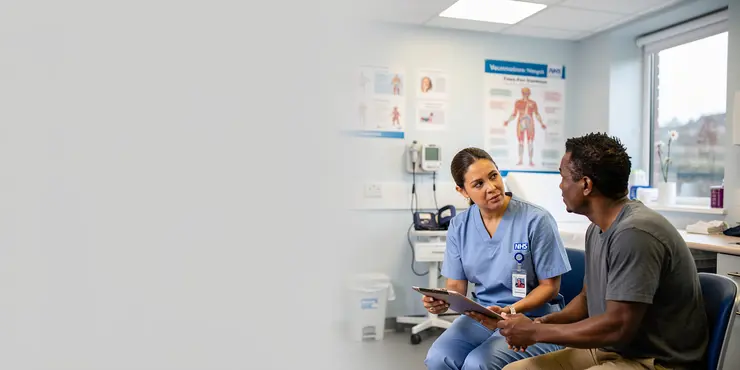
What causes shingles?
Relevance: 26%
-
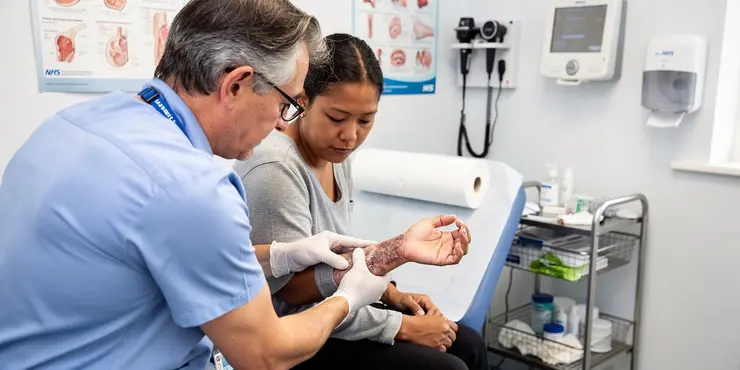
What is crusted scabies?
Relevance: 26%
-
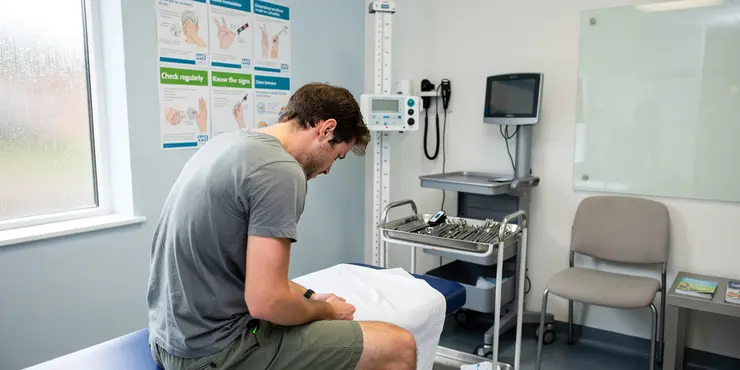
Who is at risk for testicular cancer?
Relevance: 24%
-
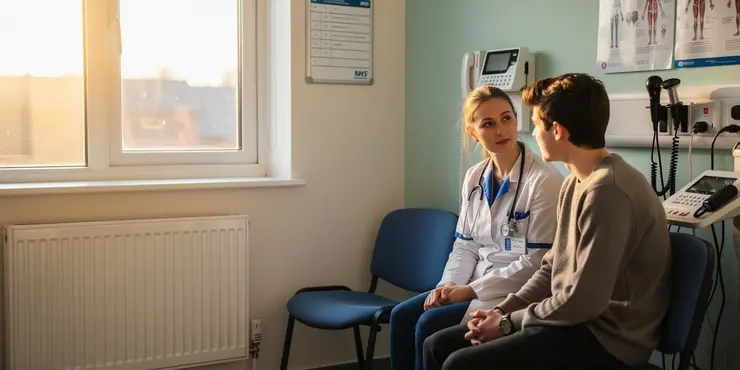
What is a seminoma?
Relevance: 22%
Understanding HIV Diagnosis in the UK
HIV (Human Immunodeficiency Virus) is diagnosed using specific medical tests that identify the presence of the virus or the antibodies produced in response to it. Timely diagnosis of HIV is crucial for managing the virus and improving health outcomes. In the UK, there are several pathways through which HIV can be diagnosed, each tailored to ensure accurate and confidential results.
Initial Screening Tests
The most common initial test for diagnosing HIV is the HIV antibody test, which looks for antibodies produced by the body in response to the virus. In a typical scenario, a blood sample is taken and tested in a laboratory. Rapid tests are also available, which can use blood from a finger prick or oral fluid to deliver results within minutes. These rapid tests are highly accurate, though a follow-up confirmatory test is usually required.
Window Period
It's important to note the window period when testing for HIV. This is the time between potential exposure to HIV and when a test can reliably detect the virus or antibodies. For most standard antibody tests, the window period can be up to 12 weeks, as it may take this long for antibodies to become present at detectable levels. However, some modern tests can detect HIV earlier by identifying both antibodies and antigens.
Fourth-Generation Tests
Fourth-generation HIV tests, now commonly used in the UK, detect HIV antibodies and the p24 antigen, a part of the virus itself. These tests can typically provide accurate results as soon as two to four weeks after exposure. Fourth-generation tests are usually conducted in laboratories, though some advanced clinics might offer this testing method on-site.
Confirmatory Testing
If an initial HIV test returns a positive result, a follow-up confirmatory test is conducted to ensure accuracy. The second test is often more specific and detailed, further reinforcing the validity of the initial findings. This step is crucial to prevent any false-positive results and verify the presence of the virus.
Access to Testing
In the UK, HIV testing is readily accessible through NHS clinics, sexual health clinics, and some GP surgeries. Additionally, home testing kits are available, allowing individuals to test privately and conveniently. These kits can be ordered online, with results typically provided within a few days of returning the sample.
Importance of Regular Testing
For individuals at higher risk of HIV, regular testing is encouraged. Early detection through regular screening not only helps in managing the virus with effective treatment but also reduces the risk of onward transmission. The UK government and health organizations continuously promote awareness and accessibility to HIV testing as part of public health strategies.
Conclusion
Diagnosing HIV accurately and early plays a crucial role in effective treatment and prevention strategies in the UK. With modern testing methods and widespread availability of testing services, individuals can take proactive steps to know their HIV status and seek early treatment if necessary. Regular and accessible testing remains a cornerstone in combating the HIV epidemic and promoting public health.
Understanding HIV Diagnosis in the UK
HIV stands for Human Immunodeficiency Virus. You can find out if you have HIV by taking special medical tests. These tests look for the virus or the body's response to it. It's very important to find out if you have HIV as soon as possible. This helps doctors take care of your health. In the UK, there are many ways to get tested for HIV. These tests are made to give clear and private results.
Initial Screening Tests
The first test to check for HIV is called the HIV antibody test. This test looks for something called antibodies. Your body makes antibodies when the virus is present. Usually, a doctor will take a blood sample to test in the lab. There are also quick tests that use a small blood sample from your finger or fluid from your mouth. These quick tests can give results in just a few minutes. Most of the time, you will need another test to make sure the results are correct.
Window Period
The window period is the time you have to wait after being exposed to HIV before it shows up in a test. For most tests, this is up to 12 weeks. It can take this long for your body to make enough antibodies to be detected. Some new tests can find the virus sooner by looking for both antibodies and a part of the virus called an antigen.
Fourth-Generation Tests
Fourth-generation HIV tests are used a lot in the UK. They check for both HIV antibodies and something called the p24 antigen. This antigen is part of the virus. These tests can usually show results two to four weeks after you might have been exposed to HIV. Most times, these tests are done in laboratories, but some clinics might have the ability to do them on the spot.
Confirmatory Testing
If your first HIV test says you might have HIV, you'll need another test to be sure. This second test checks carefully to make sure the first test was right. It's very important to do this so there are no mistakes with the results.
Access to Testing
In the UK, it's easy to get an HIV test. You can go to NHS clinics, sexual health clinics, or some GP surgeries. You can also order a test kit to use at home. This lets you test yourself privately. You get the results a few days after you send your sample back.
Importance of Regular Testing
Some people have a higher chance of getting HIV based on their lifestyle or other factors. These people should get tested regularly. Finding HIV early means doctors can treat it better, and it helps stop the spread to others. In the UK, the government and health groups teach people about testing. They want everyone to have access to tests as part of keeping the community healthy.
Conclusion
Finding out if someone has HIV quickly and accurately is very important. It helps people get the right treatment and stops the virus from spreading. With new tests and many ways to get tested, people can easily learn their HIV status. This helps them start treatment early if needed. Testing regularly and making it easy to get tested are key parts of fighting HIV and keeping people healthy.
Frequently Asked Questions
What is the primary method for diagnosing HIV?
The primary method for diagnosing HIV is through blood tests that detect HIV antibodies or antigens.
Can an HIV diagnosis be made with a saliva test?
Yes, an HIV diagnosis can be made with a saliva test, but it must be confirmed with a blood test.
How soon after exposure can HIV be detected?
HIV can generally be detected within 2 to 4 weeks of exposure using an antigen/antibody test.
What types of tests are used to diagnose HIV?
Types of tests used to diagnose HIV include antibody tests, antigen/antibody tests, and nucleic acid tests (NATs).
What is the difference between a rapid HIV test and a standard HIV test?
A rapid HIV test can provide results in as little as 20 minutes, while a standard test may take several days for results.
Are home testing kits available for HIV diagnosis?
Yes, there are home testing kits available for HIV that you can use to test yourself and then send the sample to a lab.
What is an antigen/antibody test for HIV?
An antigen/antibody test checks for both HIV antibodies and the p24 antigen, which is part of the virus itself.
What are HIV antibodies?
HIV antibodies are proteins made by the immune system in response to an HIV infection.
What is a nucleic acid test (NAT) for HIV?
A NAT looks for the actual virus in the blood and can identify HIV infection about 7-14 days after exposure.
Is it possible for an HIV test to give a false negative?
Yes, especially if the test is taken too soon after exposure during the window period before antibodies are detectable.
How long should a person wait to get tested for HIV after a potential exposure?
It's recommended to test 3 to 4 weeks after exposure and again at 3 months to confirm results.
What happens if an HIV test is positive?
If an HIV test is positive, additional testing is usually done to confirm the diagnosis.
Are there any symptoms that can indicate HIV?
Acute HIV infection can cause flu-like symptoms, but many people may be asymptomatic for years.
Can HIV be diagnosed during the acute phase?
Yes, during the acute phase HIV can be diagnosed using antigen/antibody tests or NATs.
How accurate are HIV tests?
HIV tests are highly accurate, especially when conducted after the window period, but repeat testing is recommended to confirm results.
Do I need to consent to an HIV test?
Yes, informed consent is generally required for HIV testing.
How is the confidentiality of an HIV test maintained?
Laws require that HIV test results be kept confidential, and they are only shared with authorized personnel.
What should someone do if they're worried about having recently been exposed to HIV?
They should contact a healthcare provider immediately, as post-exposure prophylaxis (PEP) can reduce the chance of infection if started promptly.
What is the 'window period' in HIV testing?
The window period is the time after HIV infection during which the virus is not detectable by tests; it varies by test type.
Why is follow-up testing recommended after an initial negative HIV test?
Follow-up testing is recommended to rule out infection due to the window period, as initial tests may not detect very recent infections.
How do doctors find out if someone has HIV?
The main way to find out if someone has HIV is by doing blood tests. These tests look for signs of HIV in the blood.
Can a saliva test tell if someone has HIV?
You can find out if someone has HIV with a spit test, but doctors will need to do a blood test to be sure.
When can we find out if someone has HIV?
You can usually find HIV in 2 to 4 weeks after you come into contact with it by using a special test. This test looks for signs of the virus in your body.
How do doctors test for HIV?
Doctors use tests to find out if someone has HIV. Here are the main types: 1. **Blood Test**: Doctors take a small amount of blood to see if there are signs of HIV. 2. **Mouth Swab Test**: Doctors use a cotton swab inside the mouth to check for HIV signs. 3. **Home Test Kits**: You can use a special kit at home to test for HIV. If you think you might have HIV, talk to a doctor. They can help. Some helpful tools are: - **Pictures and Diagrams**: These can show how the tests work. - **Listening Devices**: Hearing information can make it easier to understand. - **Counting with Fingers**: Helps with remembering steps in tests. Always tell a grown-up if you have questions or worries.There are different tests to see if someone has HIV.
One test looks for antibodies in the blood. Antibodies are made by the body to fight germs.
Another test checks for antigens and antibodies at the same time.
A different test is called a nucleic acid test (NAT). This test looks for the virus itself.
How are quick HIV tests different from regular HIV tests?
A quick HIV test gives you results fast, usually in about 20 minutes. You can do it at a clinic or at home with a special kit.
A regular HIV test takes longer, sometimes a few days to a week, because it's done in a lab. You get the results from a doctor or a clinic.
If you're unsure about which test to take, talk to a doctor or nurse. They can help you choose the right test for you.
For reading help, you can use a reading app that reads the text out loud or ask someone to read it with you.
A quick HIV test can give you answers in just 20 minutes. A normal test might take a few days to get results.
Can you get an HIV test to do at home?
Yes, you can get test kits for HIV to use at home. You take a sample, like blood or saliva, then send it to a lab for checking.
What is an antigen/antibody test for HIV?
The antigen/antibody test looks for signs of HIV in your blood. It checks for two things:
- Antigens: These are parts of the virus itself.
- Antibodies: These are made by your body to fight the virus.
This test helps find out if you have HIV. A doctor or nurse can help give you the test. If you want help understanding the results, ask a doctor or someone you trust. Pictures or videos can also help explain it better.
This test looks for signs of HIV in two ways. First, it checks for things your body makes to fight HIV, called antibodies. Second, it looks for a piece of the virus called the p24 antigen. This helps find the virus early.
What are HIV antibodies?
HIV antibodies are special proteins in your body. They help fight the HIV virus. When you get HIV, your body makes these antibodies to protect you. They are like tiny soldiers that try to stop the virus from hurting you.
If you want to learn more about how your body fights germs, you can ask a teacher or parent to help you find a book or video. You can also use apps to help you understand more.
When someone has HIV, their body tries to fight it. The body makes special helpers called antibodies to do this.
What is a nucleic acid test (NAT) for HIV?
A nucleic acid test (NAT) is a special test. It checks for the virus called HIV in your blood. It looks for tiny bits of the virus's code.
This test helps doctors find HIV early. It's very good at catching the virus, even when there is not much of it.
If you have questions or feel worried, you can talk to a doctor or nurse. They can help explain what happens with the test and what the results mean.
If reading is hard, you can ask a friend, family member, or a helper to read with you.
A NAT test can find the virus that causes HIV in the blood. It can tell if someone has HIV 7 to 14 days after they have been in contact with the virus.
Can an HIV test be wrong and say you don't have HIV when you do?
Sometimes, tests can make mistakes. An HIV test might say you don't have HIV, even if you do. This is called a "false negative."
If you're worried, you can:
- Ask for another test.
- Talk to a doctor or nurse.
- Use clear and simple information websites.
Yes, this can happen. If you take the test too soon, your body might not have made enough antibodies yet. It's like checking too early. You might want to try again later when your body has had more time.
When should you get an HIV test after you might have been exposed?
If you think you might have been exposed to HIV, it is important to get tested. You should wait at least 2 weeks before taking a test, but 3 months is the best time to be sure.
Here are some things that can help you:
- Use a calendar to mark the date when you think you were exposed.
- Set a reminder for 2 weeks and 3 months after that date.
- Talk to a doctor or nurse for advice.
- Write down any questions you have so you can ask them later.
Take the test 3 to 4 weeks after you might have been exposed. Then, take it again at 3 months to be sure of the results.
What happens if an HIV test shows you have HIV?
If your HIV test says you have HIV, it means the test found the virus in your body.
You should talk to a doctor. They can help you understand what to do next.
Don't worry; there are medicines that can help you stay healthy.
It's important to get support. You can talk to your family or friends.
There are groups that can help too. They understand and can give you advice.
Remember, you are not alone. Many people live well with HIV.
If an HIV test shows you have the virus, more tests are done to make sure.
What signs show someone might have HIV?
If you feel sick, you might wonder if it could be HIV. Here are some signs to look out for:
- Fever (feeling hot)
- Tiredness all the time
- Swollen glands that can hurt
- A rash on your skin
- Feeling sick or tummy pain
If you notice these signs, it’s important to talk to a doctor. A doctor can help you feel better.
You can also use tools like picture charts to understand symptoms better.
When someone first gets HIV, they might feel like they have the flu. But a lot of people don't feel sick at all for a long time.
Can doctors find HIV when it first starts?
Yes, when someone first gets HIV, doctors can find it using special tests. These tests are called antigen/antibody tests or NATs.
How good are HIV tests at finding HIV?
HIV tests are very good at finding out if someone has HIV.
It is important to take the test the right way. If you have questions, ask a doctor or nurse.
Sometimes, you might need more than one test to be sure.
If you need help to understand, you can:
- Ask a friend or family member to help
- Use pictures or videos that explain the test
- Talk to a doctor who can explain in a simple way
HIV tests work very well. It is a good idea to get tested again after some time to be really sure about the results.
Do I have to say yes to an HIV test?
An HIV test checks if you have the HIV virus.
You can choose to say yes or no to the test. It is your choice.
If you are worried about taking the test, talk to a doctor or nurse. They can help you understand more.
You can bring a family member or friend to help you when you talk to the doctor.
Yes, you usually need to know and agree before taking an HIV test.
How do we keep an HIV test secret and private?
Your HIV test is kept private. This means no one will know the result except you and the doctors. Here are some ways we keep it secret:
Private Rooms: You talk to the doctor in a closed room so no one can hear you.
Special Numbers: Instead of your name, we use a special code. This keeps your name safe.
If you find it hard to understand, you can ask someone to help you read, or use tools that read text out loud.
The law says that when you get an HIV test, your results should be kept secret. Only certain people can see your results, like your doctor or nurse.
What to do if you're worried about HIV
If you think you might have been near HIV and you are worried, here are some steps to help you:
- Talk to a Doctor: The doctor can give you advice and help you get tested.
- Get Tested: A test will tell you if you have HIV.
- Use a Support Line: Call a help line if you want to talk to someone.
- Ask for Help: Talking to friends or family can also help you feel better.
Remember, it's okay to ask for help. You're not alone.
They should talk to a doctor or nurse right away. Medicine called PEP can help stop getting sick if they start it quickly.
What is the 'window period' in HIV testing?
The 'window period' is the time after a person gets HIV but before it shows up on a test.
During this time, the virus is in the body, but a test might not find it.
If you think you might have HIV, talk to a doctor. They can help you understand when to get tested.
Using a calendar can help remember when to take your test.
Let someone you trust know if you are feeling worried.
The window period is the time right after a person gets HIV. During this time, you can't find the virus with tests. Different tests have different window periods.
Why should you get another HIV test after a negative result?
It is a good idea to have another HIV test if your first test says you do not have HIV. Sometimes, the first test might not find the virus in your body if it is too early. Waiting a bit and testing again makes sure the result is right.
You can use a calendar or ask someone you trust to remind you when to take the next test. You can also set a reminder on your phone.
It is important to stay safe. Always use a condom when having sex to protect yourself and others from HIV.
If you are worried, talk to a doctor or nurse. They can give you more information and help you understand what to do next.
It is a good idea to do more tests later. This is because the first tests might not find new infections right away.
Useful Links
This website offers general information and is not a substitute for professional advice.
Always seek guidance from qualified professionals.
If you have any medical concerns or need urgent help, contact a healthcare professional or emergency services immediately.
Some of this content was generated with AI assistance. We’ve done our best to keep it accurate, helpful, and human-friendly.
- Ergsy carfully checks the information in the videos we provide here.
- Videos shown by Youtube after a video has completed, have NOT been reviewed by ERGSY.
- To view, click the arrow in centre of video.
- Most of the videos you find here will have subtitles and/or closed captions available.
- You may need to turn these on, and choose your preferred language.
- Go to the video you'd like to watch.
- If closed captions (CC) are available, settings will be visible on the bottom right of the video player.
- To turn on Captions, click settings .
- To turn off Captions, click settings again.
More Items From Ergsy search
-

How is HIV diagnosed?
Relevance: 100%
-

HIV - My Story - Florence | NHS
Relevance: 97%
-

What is HIV?
Relevance: 95%
-

HIV and pregnancy | NHS
Relevance: 88%
-

How is HIV transmitted?
Relevance: 88%
-

How can HIV be prevented?
Relevance: 87%
-

Sexual Health - HIV Testing
Relevance: 85%
-

What is HIV / AIDS?
Relevance: 84%
-

Are there vaccines available for HIV?
Relevance: 84%
-

What is the difference between HIV and AIDS?
Relevance: 83%
-

Can people with HIV lead normal lives?
Relevance: 80%
-

Is HIV only a concern for certain groups of people?
Relevance: 75%
-

Can HIV be transmitted through insect bites?
Relevance: 75%
-

How does HIV affect the immune system?
Relevance: 75%
-
Can HIV be transmitted through blood transfusions?
Relevance: 75%
-
What role does stigma play in the HIV epidemic?
Relevance: 74%
-

How often should someone get tested for HIV?
Relevance: 74%
-

Is it safe for a partner of someone with HIV to have children?
Relevance: 71%
-

What are the symptoms of HIV?
Relevance: 66%
-

Can HIV be cured?
Relevance: 62%
-

Prostate cancer diagnosis and tests
Relevance: 57%
-

BSL - Diagnosis of panic disorder
Relevance: 56%
-

Head and Neck Cancer Diagnosis
Relevance: 56%
-

Are AI systems used alone in lung cancer diagnosis or alongside human radiologists?
Relevance: 54%
-

Attention deficit hyperactivity disorder (ADHD) - Diagnosis
Relevance: 52%
-

BSL - Diagnosis of obsessive compulsive disorder (OCD)
Relevance: 51%
-

What is antiretroviral therapy (ART)?
Relevance: 47%
-

What is AIDS?
Relevance: 46%
-

What is the life expectancy after a motor neurone disease diagnosis?
Relevance: 46%
-

What does an undetectable viral load mean?
Relevance: 37%
-

What other viruses are tested for in blood donations?
Relevance: 33%
-

Can HIV be transmitted through casual contact?
Relevance: 33%
-

Sexually transmitted infections STIs
Relevance: 33%
-

What diseases can be spread by blood transfusions?
Relevance: 28%
-

How is blood screened to prevent disease transmission?
Relevance: 28%
-

What are the guidelines for meningitis vaccination for HIV-infected individuals?
Relevance: 28%
-

What causes shingles?
Relevance: 26%
-

What is crusted scabies?
Relevance: 26%
-

Who is at risk for testicular cancer?
Relevance: 24%
-

What is a seminoma?
Relevance: 22%


